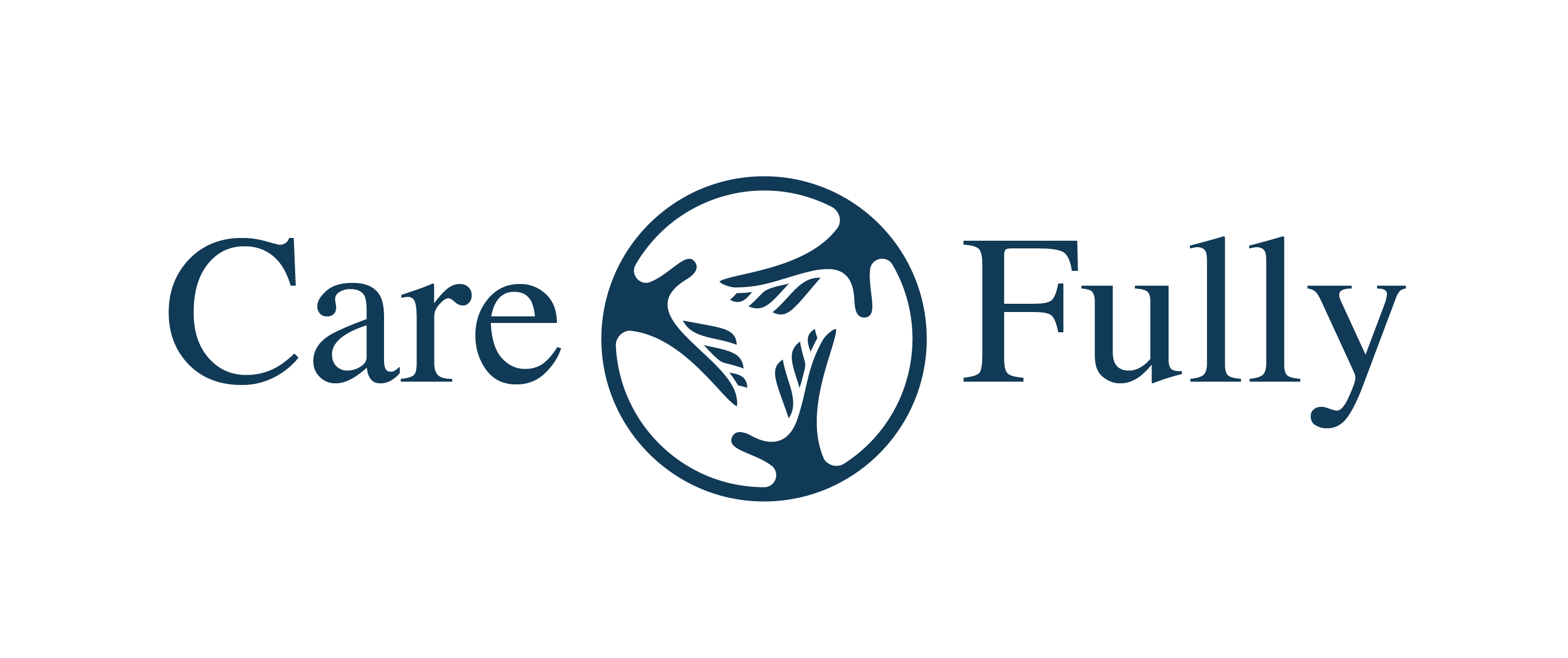In caregiving, every day is the middle
When it comes to caregiving, every part that is not the day it starts or the day it ends is the middle. There are no stages in between because nothing unfolds predictably.

*This post was originally published on July 2, 2019 on Medium.

The middle is the part you’re not supposed to talk about while it’s happening. It’s more comforting to the audience and certainly more safe to wait until you know how the story concludes before talking about it. This is definitely not the part you’re supposed to talk about out loud while trying to start a company or find work because this is the part that is messy and not at all heroic. It doesn’t make a good segment on a resume or highlighted skill on LinkedIn. It’s terrifying to write about. Writing at the middle, and worse, sharing it, means no satisfaction for the reader and no rest for the writer, not just because I’m afraid of what you might think but because the days are still occupied by the story unfolding.
When it comes to caregiving, every part that is not the day it starts or the day it ends is the middle. There are no stages in between because nothing unfolds predictably. The beginning can be a surprise or as inevitable as the end, but the middle is a daily reckoning with some new challenge. Barring the certainty of the finale, I don’t know how this is all going to work out. Each day is simply another tone on the Shepherd scale of caregiving.
I spent this past weekend sitting on the couch, my coffee table piled with all the receipts for things we’ve covered the cost of this past year as I read the latest rejection email. They were excited about my work and my future, it just wasn’t going to be in their program. The dwindling of our savings account has paired frighteningly with the dwindling of my professional opportunities. The cushion slowly built up to separate my life now from the one in poverty that I came from is now gone.
The overlap between when my husband and I started our new roles as caregivers to an elderly relative and when I started accumulating rejections to every full time job and fellowship I’ve applied to this past year is both unavoidable in notice and as related and not related as two things can be. (I’m not completely out of work, as I still do consulting and contract projects and I’m forever grateful to the people I get to work with regularly.)

The plane had just touched down coming home following a three week stay with her in April following a major medical emergency. I was still reeling from the dollar signs that were looming, when I got the email from a job I’d recently interviewed for. They’d been trying to get in touch while I was in the air. What they were hiring for was my exact area of expertise, but they were looking for someone different. Had I been so focused on diagnoses and prognoses that I missed some clue that would have made a difference in the interview? I scoured the posting over and over afterward and replayed every moment of the interviews and conversations looking for it, certain that I’ve missed some detail that should have clued me on how to present myself better.
I was scrambling between static-ridden phone calls, trying to listen in from a distance on a major doctor’s appointment last month, when I got the email saying that while I was such a strong candidate, I needed more experience in a particular kind of journalism to really thrive in the position. That night I poured over the description again, in the rush of things maybe I did a poor job in the application explaining my strengths and skills.
I know all of them found perfectly suitable candidates, because this industry has many very good people, all trying to find their next job after whatever the latest round of newsroom layoffs have taken place. The odds are not in my favor. Each email takes the great pain of a sentence telling me that I’m good, just not quite what they were looking for and then 3–5 sentences telling me how hard it was for them to make this decision. (There should be a rule about the maximum allowed number of exclamation marks in a rejection email, and that number should be zero.)
It’s in these moments I realize just how much caregiving affects my ability to work. I don’t tell her about the jobs I don’t get, because then I’d have to tell her about the rejections, about how I missed some detail, some cue, that I wasn’t as polished or as prepared as I needed to be.
I have absolutely no doubt that I can do and succeed in any of these jobs. But I have seemingly lost my ability to communicate that. I can’t help but blame myself that it couldn’t be me for each one of those opportunities. Because I know I’m not doing my best work right now. Because out of a significant number of timelines I’ve told people this year, I’ve been the one to break it due to developments in her situation before it stabilized recently. Because my focus is painfully split. Because I haven’t quite figured out how to switch back and forth between writing proposals, cover letters and applications and doing the work I’m already doing and talking with someone about how she wants to spend her time before she dies and then have that same conversation the next day and the next week because she forgot or she’s remembered that it’s possibly looming (depending on which doctor we’ve most recently spoken to) and is upset. And then having frank conversations with my husband about when that might be so we can scour the world’s most poorly constructed social system to wring every last bit out of it for her quality of life before that happens. All of that hampered by the fact that literally no one knows how it all works at a practical level. Because I would do this all again. Because no matter what, I can’t walk away. Because I won’t walk away.
I spend a lot of my time contemplating the details of the impending mortality of someone I’m on the phone with multiple times a day, trapped with her on the cusp of dementia and her awareness and fury that it’s happening, and the nth iteration of a conversation or question I’ve already answered that day or the day before. That’s before we get to the hours each week it takes to coordinate doctors, follow up with nursing home details, pay her bills and deal with all the details of the house she still owns that has to be sold.
There is nothing I can do to make her life better, only less worse, trapped within the confines of systems that barely let one live out their days with peace and dignity. While I apply for all the things that I’m qualified for and work to build out my own company, I know that I’m also in a contracting, perpetually broke industry that doesn’t have the best track record for knowing what it should do next but is overflowing with people in need of jobs who can facilitate whatever the current theory is or have their own better ideas.
But the nature of being in the middle is also the nature of feeling perpetually that I am fucking all of this up, even when there aren’t any good options. The middle is the arch between two pillars. Mess up one stone and it all crumbles. Maybe that’s just the nature of eldercare. The weight of trying to make a life, no matter how traumatic or painful it was before, into something peaceful and painless at its sunset. The weight of knowing the end of the story colors the perception of everything that leads up to it.

If I can find comfort and despair in the numbers, it’s that there are approximately 44 million unpaid eldercare providers in the U.S. and the majority are women. It can never be said that my husband hasn’t stepped up at every opportunity, but the nature of our jobs simply means he doesn’t have the time or flexibility to do a lot of what needs to be done and the nature of ourselves means that he doesn’t always have the tools. He drives a very large truck for the majority of the day on strict schedules and with little flexibility. My day job is primarily finding and making sense of information and I work remotely with flexible scheduling. I can spend the day time hours working on her stuff when I need to, and the night working on mine. We spent his last two vacations with her and I’ve handled all the trips in between. It was inevitable how this work would be divided.
From the same article that introduced me to the 44 million others:
“And yet there are very few support programs, formal or informal, in place to support these family caregivers, many of whom are struggling at work and at home. Working daughters often find they need to switch to a less demanding job, take time off, or quit work altogether in order to make time for their caregiving duties. As a result, they suffer loss of wages and risk losing job-related benefits such as health insurance, retirement savings, and Social Security benefits. In fact, a study from MetLife and the National Alliance for Caregiving calculated women lose an average $324,044 in compensation due to caregiving.”
This article uses the word daughter, but there isn’t a clear word to describe the relationship between myself and this woman. We think we are related in some distant way, but she can’t remember and anyone who could tell us has already passed. For all of my life that I’ve known her she’s been called Aunt, and I continue to do so now because while there are clear words and ways for choosing a spouse and even choosing children, there are no words for the other kinds of choosing a family and she is mine.
The lack of words similarly fails me professionally because while there are recognized patterns for explaining childcare to employers and clients and a degree of acknowledgement in the workplace for making space for that, there still aren’t great ways to make space for senior caregiving. I don’t know how to explain to someone that I’m late on a deadline because I lost half a day of work due to having to be on the phone for hours to listen in on a doctor’s appointment and talk her through being in a medical transport for an hour each direction with someone she doesn’t know.
How do I tell people that this is a thing I have to do when many have treated it as optional? For every supportive colleague, there’s been another person telling me things like “you’ve done enough” or “you can’t spend years doing this, it’s not sustainable” and I want to wave my arms and shout that she’s still here and she still needs us.
I have felt lost as I try to figure out how to make space for the caregiving while making a living, especially the kind that is not loosely clock-in, clock-out but pitches, proposals and actively, every day, hustling for work or trying to find something full time. It is terrifying to write and share this while trying to do those things and knowing this is out there, but at the same time, I just wish I could hear someone else say this too.

Every day is not an emergency in the strictest terms but effectively functions like one. In the way that emergencies make it impossible to plan far out. In the way that money is terrifyingly tight. In the way that so many things are on hold. In the way that we’re tied to our phones and keep a sharp eye out for certain phone numbers or the way that we now jump for calls at unusual hours, concerned it might be an actual emergency. In the way that we feel keenly, the shortcomings of the systems that are supposed to be helping. In the way that the impersonal nature of those same systems demoralizes rather than supports. In the way that we were exactly in the middle yesterday and are still exactly in the middle today and we don’t know what happens between now and the end.
In many ways, I feel like this is the story that people want to hear after the fact or maybe my gut is just saying wait to share it, wait until it’s been cleaned up and carefully edited, each word perfectly used. Wait until there is an ending, so I can pretend the moral of the story is staying strong or making it through a hard situation or some thoughtful meditation on the struggle of life so the reader can say things like “wow, we had no idea” or “she held it together so well.” But I’m not and I don’t know that you can say that yet or at all. I’m doing my best.
And if I owe you an email or a call, I promise, it’s coming.
